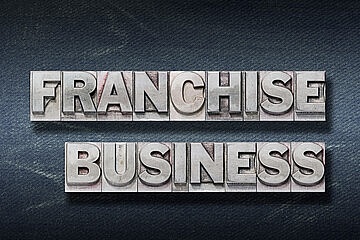F&B businesses reluctant to embrace franchising
According to the 2023 Franchising Economic Outlook, the quick-service restaurants (QSRs) and full-service restaurants category account for over 67 per cent of all franchise employment, with QSRs anticipated to have witnessed the strongest industry growth of 2.5 per cent in 2023 compared to all other sectors in franchising.
The food and beverages (F&B) market value in Vietnam is projected to rise by 10.92 per cent in 2024 compared to 2023, reaching over $26 billion, according to Kirin Capital, a private equity firm.
Furthermore, it reports that independent F&B outlets will continue to dominate, holding 93.9 per cent of the market share by 2027, reaffirming the supremacy of this business model.
 |
Le Thai Hoang, CEO of Thai Market, a Thai restaurant chain with locations in Ho Chi Minh City, Hanoi, and Danang, believes franchising is not the only path to success.
"For a full-service restaurant like Thai Market, with a complex menu and unique operational management and customer service standards, franchise partners may struggle to adhere to our principles," Hoang said.
"As a result, our brand could suffer due to irresponsible franchisees."
Consequently, Thai Market's CEO has opted for a strategy focused on brand reputation and targeted growth. Ho Chi Minh City is its primary development hub, with expansion plans also targeting major cities like Hanoi and Danang.
Similarly, Rau Ma Mix, a beverage brand established in 2019, has thrived without franchising.
Despite having 60 stores in prime urban locations like Ho Chi Minh City and Binh Duong, founder Le Thanh Dat remains cautious about franchising.
"At Rau Ma Mix, the production and logistics processes are tightly controlled, from preparation to store delivery, ensuring quality. Not all partners have the dedication needed to operate effectively," Dat said.
Perhaps the biggest lesson on the pitfalls of franchising comes from the budget milk tea brand Mixue.
In less than four years, over 1,000 stores have sprung up nationwide, with one appearing every kilometre in Hanoi. This oversaturation has diluted customer traffic, leading to losses for many franchisees who are struggling to break even.
Nguyen Thuy Chi, a Mixue franchisee in Long Bien district, said, "Initially, the store performed well due to limited competition. But now, we face competition not only from other ice cream and milk tea brands but also from other Mixue outlets, some just a kilometre away."
When a brand expands too quickly through franchising, it risks losing its quality and finesse that add to the customer experience.
Brands that fail to analyse the market prudently may get swept up in competition trends, ultimately disadvantaging franchise buyers.
 | Gen Z shaping the future of F&B industry Younger Vietnamese people are shaping the food and beverage industry with their preference for local items. |
 | F&B market taking on fresh appeal Vietnam’s food and beverage market is emerging as a hotbed of opportunity, with several companies from neighbouring nations as well as those further afield ramping up activity. |
 | Seizing opportunities in F&B With an average annual growth rate of over 10 per cent, the food and beverages (F&B) market in Vietnam is a dynamic sector. Director of Consumer and Marketing Insights at NielsenIQ Dang Thuy Ha discussed with VIR’s Oanh Do the latest consumer trends helping businesses achieve success in the market. |
What the stars mean:
★ Poor ★ ★ Promising ★★★ Good ★★★★ Very good ★★★★★ Exceptional
Related Contents
Latest News
More News
- PM outlines new tasks for healthcare sector (February 25, 2026 | 16:00)
- Ho Chi Minh City launches plan for innovation and digital transformation (February 25, 2026 | 09:00)
- Vietnam sets ambitious dairy growth targets (February 24, 2026 | 18:00)
- Masan Consumer names new deputy CEO to drive foods and beverages growth (February 23, 2026 | 20:52)
- Myriad risks ahead, but ones Vietnam can confront (February 20, 2026 | 15:02)
- Vietnam making the leap into AI and semiconductors (February 20, 2026 | 09:37)
- Funding must be activated for semiconductor success (February 20, 2026 | 09:20)
- Resilience as new benchmark for smarter infrastructure (February 19, 2026 | 20:35)
- A golden time to shine within ASEAN (February 19, 2026 | 20:22)
- Vietnam’s pivotal year for advancing sustainability (February 19, 2026 | 08:44)

 Tag:
Tag:




















 Mobile Version
Mobile Version